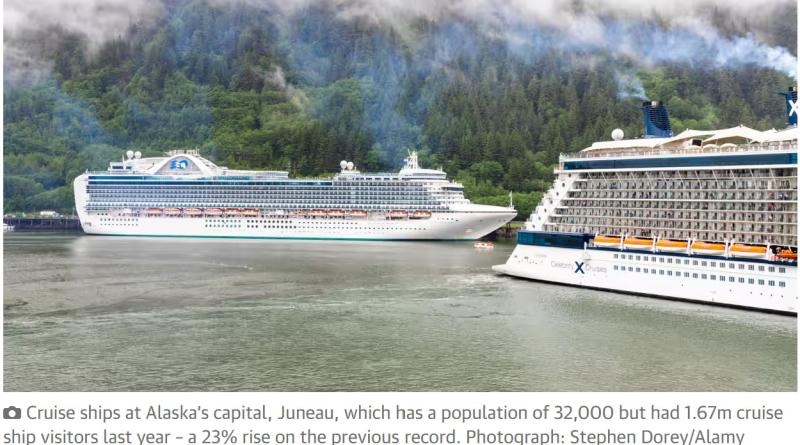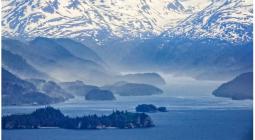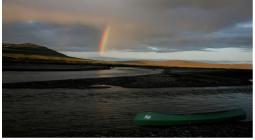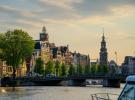Alaska limits cruise ship passengers in capital city after 1.6m visitors last year

Alaska’s capital city is to limit the numbers of cruise ship passengers arriving at the port amid concerns over tourism’s growing impact, but a leading critic of the industry has said further measures to protect Alaskans’ quality of life are needed.
Located on the Gastineau Channel in southern Alaska, Juneau has a population of 32,000 and last year received a record 1.65 million cruise ship passengers – a 23% increase from the previous high.
While many businesses encourage the bonanza of tourist dollars, other people are bothered by buzzing helicopters, crowded streets and hiking trails, and damage to the local environment.
Seeking to balance the economic benefits against the effects of high numbers of visitors, the city reached an agreement last week with the Cruise Lines International Association in Alaska that will limit daily cruise passenger arrivals to 16,000 from Sundays to Fridays and to 12,000 on Saturdays.
Juneau’s tourism manager, Alexandra Pierce, said: “The city’s position is that we do not have room for cruise growth with our current infrastructure and we have negotiated the daily passenger limits to bring down our busiest days.” The agreement aimed to hold cruise passenger numbers roughly steady while the city worked on improving infrastructure, she said.
“Cruise tourism is important for our local and regional economies and we need to be good neighbours while also finding the balance between concerned residents and the local livelihoods that depend on the visitor industry,” Pierce said.
A former gold-rush town set near an imposing glacier, amid lush rainforests, towering mountains and abutting a pristine waterway that is home to humpback whales, Juneau has become Alaska’s most popular port for cruise ships.
Karla Hart, a Juneau resident and longtime critic of the cruise industry, remains concerned that the daily visitors allowed under the new agreement could still see arrival records broken over the course of the 22-week cruise season.
“The city’s direction to the staff was to hold the number or somewhat reduce it, and yet we now have a negotiated agreement that, if you do the math, would let us have 2.5 million cruise-ship passengers,” she said.
Instead, Hart is backing a local referendum proposal for “ship-free Saturdays”, a policy that would prevent ships with more than 250 passengers stopping in Juneau one day a week.
“Our ballot initiative is really looking at providing some quality-of-life protection for the community that we can tangibly see and feel one day a week by not having the cruise ships in our port,” she said.
The cruise industry is booming after the pandemic, and the ships are getting bigger. Some vessels are now able to carry close to 6,000 passengers, with insiders saying the industry is still far from reaching the limits of how big they can get.
In January, the world’s largest cruise ship to date, Icon of the Seas, was launched. It towers 20 decks above sea level, carries more than 7,000 passengers and crew, and has the world’s largest waterpark on a ship.
Juneau is not the only city concerned about the growing social and environmental impacts of cruise ships. Venice and Barcelona have restricted access, while Amsterdam has introduced a day tax on passengers.
Hart said: “Air and water emissions from the cruise ships are a big concern, as well as ship strikes and climate change. The list goes on.”







